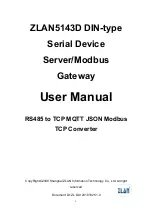
81
TCP/IP
Transmission Control Protocol/Internet Protocol. The
protocol that computers use to communicate over the
Internet. TCP determines how a computer breaks up data
into small units, called packets, to be sent to another
computer, and how the receiving computer reassembles
the packets into a single file. IP determines how the
packets are routed across the Internet.
UPnP
Universal Plug and Play (UPnP) is a standard that uses
Internet and Web protocols to enable devices such as
PCs, peripherals, and wireless devices to be plugged into
a network and automatically detect each other. With
UPnP enabled, when you add the gateway into the
network, the device configures itself for Internet access.
USB
Universal Serial Bus
A peripheral bus standard that enables external devices
to attach to a PC while the PC is powered on. The flat-
shaped USB connector plugs into a similarly shaped
socket on the PC.
VPN
Virtual Private Network. A VPN is a type of computer
network that functions like a private network but uses
public phone lines to carry data. VPNs use special
communication protocols and security techniques to
maintain privacy at a lower cost than is possible with
dedicated phone lines. The VPN software encrypts data
before sending it across the Internet to the other local
network. This keeps the data and the two local networks
secure, but lets them form a virtual network that includes
computers in two separate locations.
user_guide_rg1210.book Page 81 Monday, April 22, 2002 2:20 PM












































